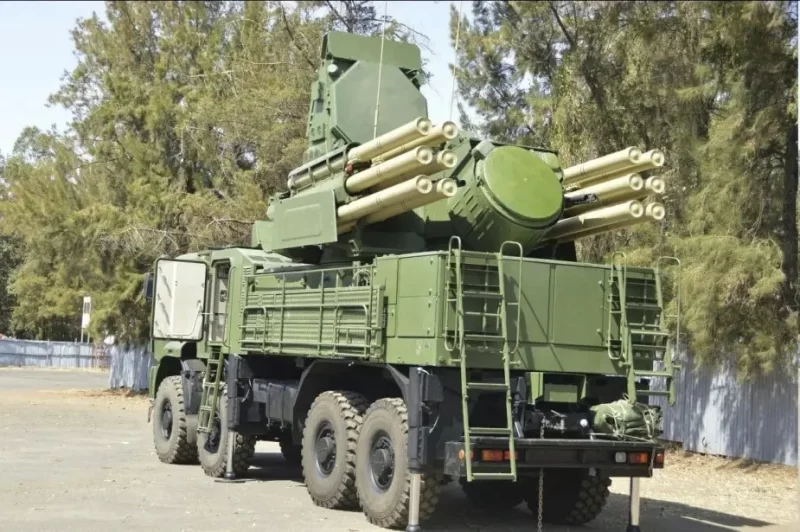Ethiopia has taken measures to enhance the protection of its Grand Ethiopian Renaissance Dam (GERD) by deploying state-of-the-art Russian-made Pantsir-S2, Israeli Spyder air defence and Ukrainian ST-68UM radar stations. This move comes amid rising geopolitical tensions surrounding the dam’s filling, which has raised concerns among downstream countries.
GERD, a substantial hydroelectric project located on the Blue Nile River in Ethiopia, stands as one of Africa’s largest dams. It has triggered concerns regarding its potential downstream impact on water resources, primarily affecting Egypt and Sudan.
To safeguard the dam’s critical infrastructure, Ethiopia has procured air defense systems from countries such as Russia and Israel. In 2021, Israeli Skylock counter-UAS solution was awarded a contract to provide anti-drone equipment to the Ethiopian forces. These defense systems are strategically positioned to counter potential threats and protect the dam.
On one hand, the Pantsir-S2 is a versatile surface-to-air missile and anti-aircraft artillery system designed to defend military installations, industrial sites, and ground forces. It provides robust air defense capabilities against various threats, including aircraft, helicopters, drones, precision munitions, and cruise missiles.
On the other hand, the Ukrainian ST-68UM radar station is a highly capable three-coordinate radar system specialized in detecting, identifying, and tracking airborne targets, including strategic cruise missiles. It maintains effectiveness even in the presence of organized active and passive interference, ground reflections, and challenging meteorological conditions.

Also, two Israeli firms, Israeli Aerospace Industries and Rafael, had installed Spyder-MR defense systems near the GERD in July 2019. The system is guided by an Elta radar making it effective against aircraft flying at low and medium altitudes, UAVs, cruise missiles, and precision-guided munitions within the system’s range.
This deployment of advanced air defence systems and radar stations underscores Ethiopia’s unwavering commitment to safeguarding its crucial assets and sends a clear message that it is prepared to protect its interests against potential security threats.
The geopolitical tensions surrounding the GERD issue are intricate and multifaceted. Downstream countries are apprehensive about the dam’s potential effects on water availability, flooding patterns, and environmental stability. In contrast, Ethiopia views the GERD as an essential infrastructure project vital to its economic development.
It is essential to recognize that the GERD is still under construction, and its full impact on downstream nations remains uncertain. Moreover, Ethiopia, Egypt, and Sudan are currently engaged in negotiations to address these concerns and establish a sustainable framework for water management.
At the height of the political tension in 2021, when Ethiopia’s negotiations with Cairo over the Grand Renaissance Dam (GRED) project was crumbling, threat of possible military confrontation between both countries grows.
The diplomatic discussion between Egypt, Sudan and Ethiopia over the GERD had stalled since April 2021 after the African Union’s (AU) mediation failed to broker a deal.
In response, the commander of the Ethiopian Air Force, Major General Yilma Merdasa, said that the air force is on high alert to defend Ethiopia against foreign threats.
In the context of GERD negotiations, the deployment of air defence systems and radar stations by Ethiopia is a significant development. One potential rationale for deploying these defense systems is to deter downstream countries from considering military action against the GERD. Ethiopia may also seek to convey its commitment to safeguarding its strategic assets to the international community.
Nevertheless, the deployment of these systems could have adverse effects on the GERD negotiations. It may foster an environment of mistrust and suspicion among the involved parties and lead to heightened regional tensions.
